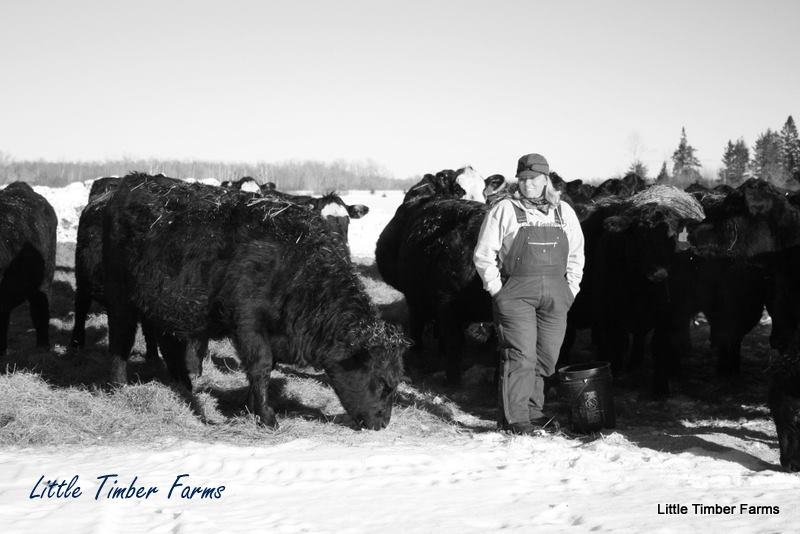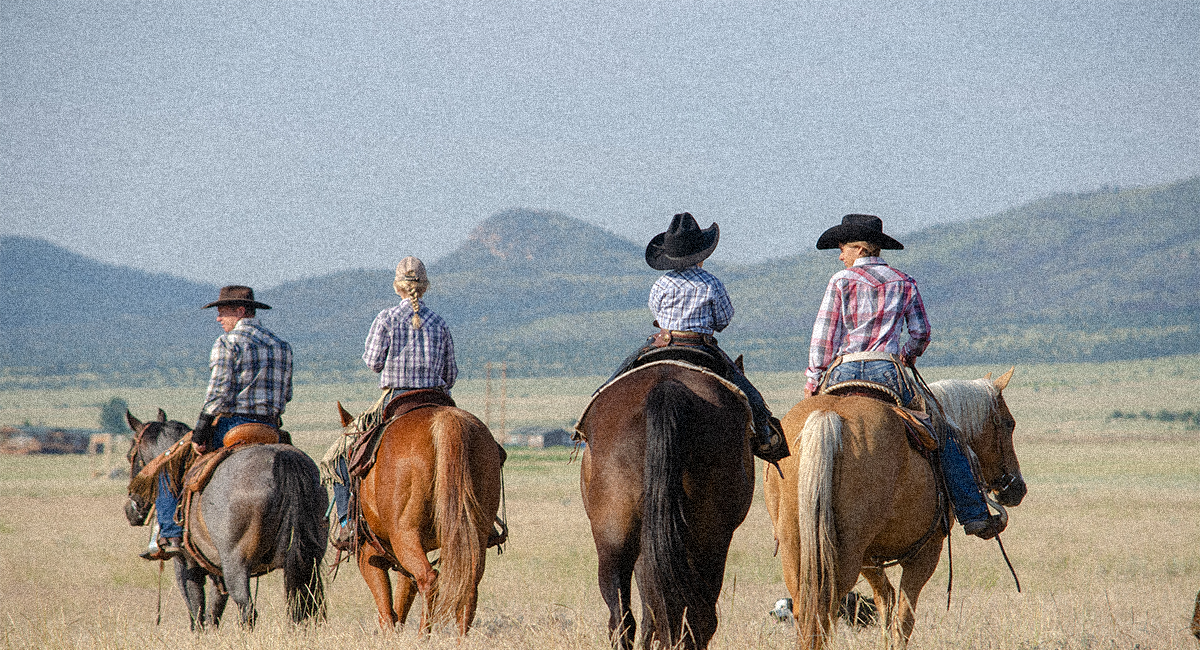Meet Rachel Gray
A passion for lifelong learning. That’s what motivates Rachel Gray of Little Timber Farms in Blackduck, Minnesota, to improve and perfect her bred heifer development program. Changing careers from 6th grade schoolteacher to full-time cattle producer and farmer, Rachel still carries with her a love for teaching others and educating herself.
“As a teacher, you learn how to listen well to your students, and you learn how to listen to the parents of your students. That has served me well,” she said.
Timberedge Farm, now Little Timber Farms, began in the 1930s with her great grandparents, but it looked a little different back then. It was a dairy farm before it became a commercial beef cattle operation in 2002 when her parents operated it. Rachel is the fourth generation on the farm now, and her son and grandchildren are the fifth and sixth. Her son, Nick, and her father, Murl, help her run the daily operations. Today, Little Timber Farms buys F1 females, grows them on high-quality forage, and sells them as bred females in the fall. This style of business requires a lot of time and attention from Rachel, and she loves the lifestyle.
“I feel lucky if I get back to the house by 6:30 or 7 p.m. each night. It’s long days. But I wouldn’t trade it for anything,” she said.
In 2012, the opportunity arose for Rachel to buy the farm from her parents. She had taught for 15 years, so there was an adjustment to be made when she moved back to the farm. Gone were the weekends off and clocking out at 4:30 p.m. as well as summer vacation. But in its place, she now has more flexibility with her daily schedule and can be her own boss, making her own decisions for the good of the farm. People have been surprised that Little Timber Farms is woman-run. Rachel learned from her grandmother and mother before her who were also cattle farmers, and she watched them dedicate time to the family business. Now, Rachel encourages other young women to develop as agricultural entrepreneurs.
“Number one, if you’re passionate about it, know that it will be hard. There is nothing easy about this lifestyle, but it is worth it. And educate yourself. Don’t go into this without some sort of education,” Rachel advised.
Her advice for other women in agriculture? Surround yourselves with the best people in the industry you can find and learn from them. Have them on speed dial to call when a question arises or an idea needs to be talked through.
“I am proud of the fact that women before me were all farmers and cattle women. I learned from some of the best at a very early age how to take care of cattle,” she emphasized.
Perhaps this love for encouraging others to learn led to her activity with Common Ground, a nationwide advocacy organization of female farmers who connect with women in urban and suburban areas to talk about food, work, family and connection. Whether it is speaking to large groups at an organized event, or popping up a table at a grocery store, Rachel has had numerous opportunities with Common Ground to share insight into life as a cattle producer. Urban consumers can feel intimidated by food labels, misinformation online and shocking headlines. Rachel is a part of Common Ground to dispel myths and share facts of beef nutrition, animal welfare and husbandry, and cattle sustainability with female consumers. Another benefit of the organization is equipping female farmers with the skills and tools to speak to large groups who have questions about their products.
“We talk to foodies, influencers, and people who have a large following on social media. We talk to them about the facts of food and farming and what we do,” she added.
Rachel even had an experience with a blogger who was anti-cattle and anti-beef when they met. Rachel invited the woman to her own farm. Although she wasn’t ever able to visit in person, Rachel was able to have multiple Zoom video calls with the woman while she was in the field, feeding and caring for her heifers. Rachel began to notice a shift in the woman’s tone and language online regarding cattle.
There is nothing like watching your kids and grandkids grow up on the farm and learn to love the land you’ve protected and stewarded your whole life. Rachel experiences this with her son, who works on the farm, and her two grandchildren.
“My granddaughter spends a ton of time with me. She would tell you all these heifers are hers, and now her brother follows suit,” Rachel chuckled. “You just see the confidence in these kids as they learn things like being in the tractor, how to stick with a job, and learn the importance of the job.”
Rachel is full of gratitude for the way she was brought up and the way her grandchildren can be reared. While she may have shifted away from a teaching career, she is still educating her family and her Minnesotan community about the importance of cattle for the longevity of the land and the values that children gain from working the land and livestock. While she may have to sleep in the barn from time to time to monitor heifers, to Rachel, there is no better calling.

